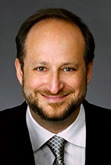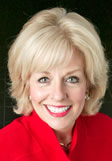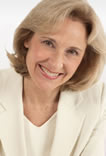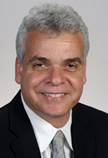“The Brain: An Owner’s Guide,” a series of sold-out lectures presented by UT Dallas’ Center for BrainHealth, offered the public a chance to learn about research breakthroughs and how they might change lives.
The talks covered a wide range of topics, from the expanded use of stem cells to treat brain disorders to a look at how love and its accompanying emotions affect the brain. Leading researchers from around the nation explained the significance of research advances to our understanding of the brain.
The series was sponsored for the third year in a row by The Container Store and was held on consecutive Tuesdays in February in BrainHealth’s Frances and Mildred Goad Building in Dallas.

Dr. Norman Doidge
Dr. Norman Doidge, a Canadian psychiatrist and author of the bestselling The Brain that Changes Itself, kicked off the series by discussing neuroplasticity, the brain’s startling ability to alter its structure and function in response to mental experience.
“Thought can change brain structure,” Doidge told the audience in BrainHealth’s high-tech auditorium. An overflow reception area accommodated nearly 100 more guests who viewed the lecture on a large-screen monitor.

Dr. Sandra Chapman
The second talk of the series allowed Dr. Sandra Chapman, founder and chief director of the center, to discuss ways that people can minimize the gap that currently exists between the body’s increasing lifespan and the lifespan of a fully functioning brain. Noting that leading-edge research has revealed that the brain is the most modifiable organ in the human body, Chapman discussed ways that individuals can “improve mental function by exercising their brains, much like they do their bodies, to optimize their mental core.”

Dr. Helen Fisher
Dr. Helen Fisher’s lecture focused on “The Brain in Love.” Her decades of research examining the brain and emotion, including in-depth visual peeks using fMRI technologies, showed “no difference, brain-wise, across cultures or between men and women, old and young, gay or straight” when it comes to how the brain behaves when a person is swept up in romantic love. Fisher’s lecture incorporated incisive humor and described in detail why a person falls in love with one partner rather than another.

Dr. Paul Sanberg
Dr. Paul Sanberg, one of the nation’s top experts on the transplantation of stem cells to treat brain damage caused by disease and trauma, focused his lecture on the thrilling promise of this new research. “Maybe aging is a stem cell disease,” he said.
The coming years of stem cell study, including the use of umbilical cord blood cells to repair the damaged brain, are of paramount importance, he said.
A touching postscript was added by Leigh and Russ Johnson, a Dallas couple who discussed the almost-miraculous transformation of their baby daughter after stem cell therapies.
“We’re only at the beginning of understanding what the brain can do,” said Johnson, who encouraged support of stem cell studies and research at the Center for BrainHealth. “This stuff works.”
“The Brain: An Owner’s Guide” lecture series grows in popularity and attendance each year.
“You can hardly pick up a newspaper or turn on the news without hearing about something brain-related,” said Sarah Monning, the BrainHealth community relations director who helped organize the event. “People are hungry for information about the brain. This series gives leading scientists the opportunity to share their latest research discoveries with a welcoming Dallas audience.”
Melissa Reiff, president of the The Container Store, said the company seeks to support causes that make a meaningful community difference.
“The Center for BrainHealth fits that description completely,” she said.